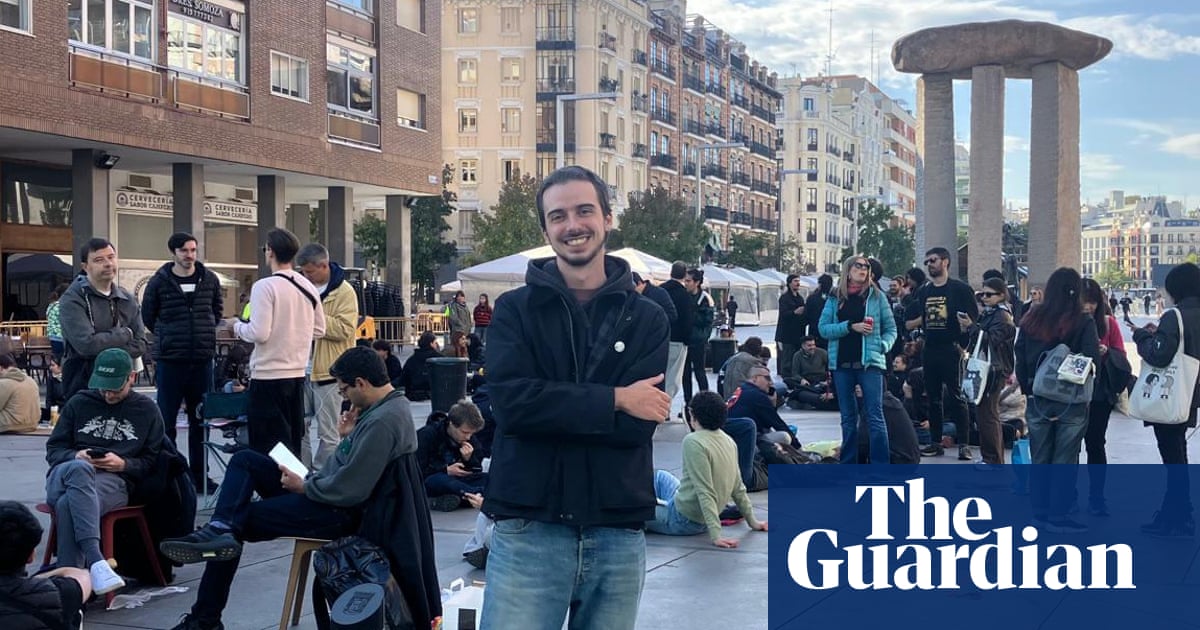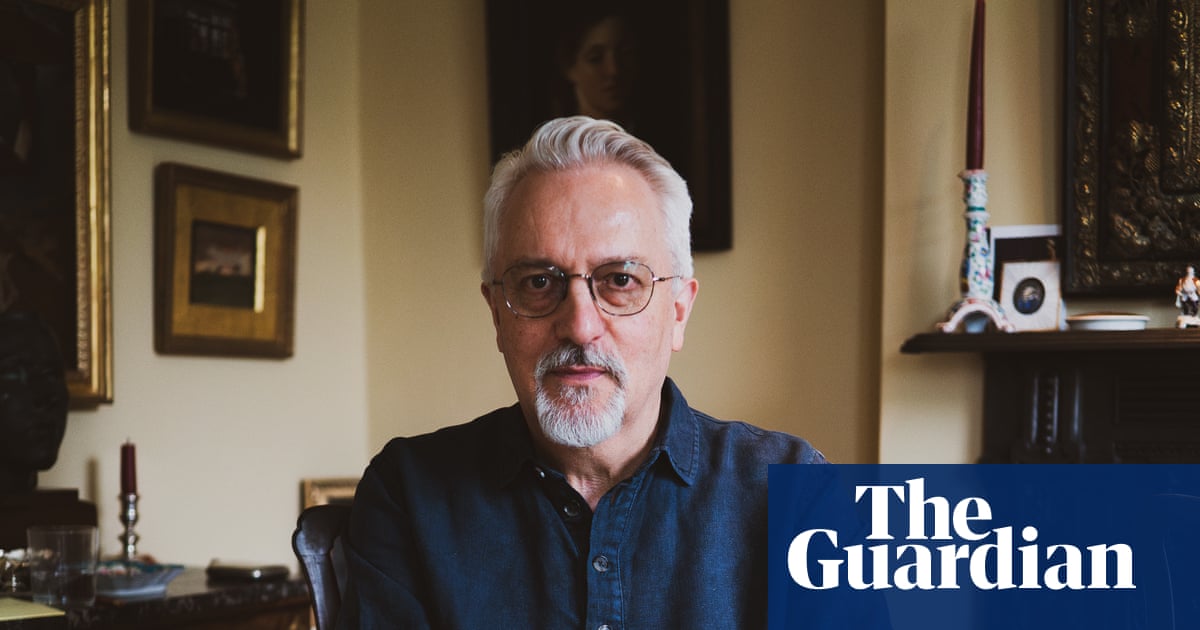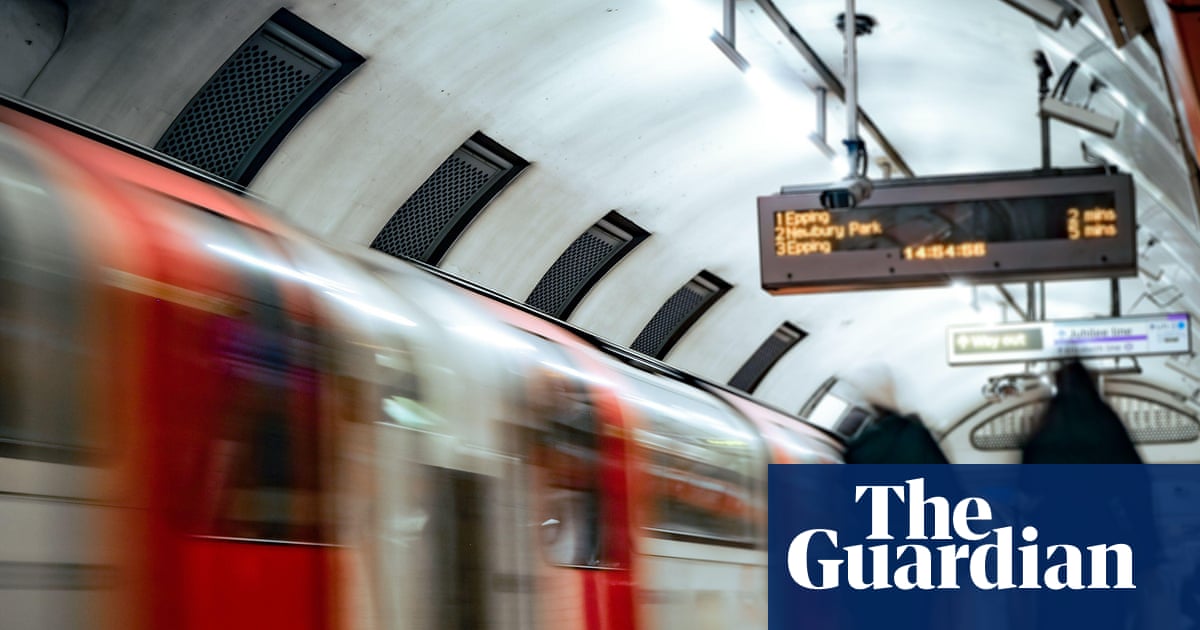It was while walking to his local Co-op that Ty, a 27-year-old student in Brighton, noticed a strangely long queue for the cashpoint.
In the shop, a staff member told Ty the payment systems were down after a cyber-attack. It was cash only. But Ty didn’t need to join the queue. Instead, he felt vindicated. It was another instance that justified his recent switch to using physical currency instead of digital payments.
“I’ve started in the last few months to favour cash again, using it almost exclusively, to the point where I refuse to shop in places that take card only,” he says.
Ty is one of a number of people in the UK who have turned back to banknotes in recent years. Despite cash being used for only 12% of UK payments in 2023, collapsing from 51% in 2013, according to UK Finance, data from the Bank of England suggests the value of banknotes in circulation has jumped 23% since before the pandemic.
The Bank’s chief cashier, Victoria Cleland, has said UK households are building cash contingency pots as they did during the pandemic and cost of living crisis in response to high-profile incidents such as the recent energy blackout in Spain and Portugal and the cyber-attacks on Marks & Spencer, The Co-op and Harrods. Repeated IT outages at Britain’s largest banks and building societies will not have helped consumer confidence in under-pressure digital systems.
Ty says: “Unlike card, cash is private and doesn’t leave data about the purchase, it doesn’t cost the merchant transaction fees, it’s easier to manage owing to its physicality – using a card makes spending too easy – and it won’t fail you in the event of a systems outage.”
Ty’s preference for cash began while working at a building society. He says he witnessed first-hand that, if the electronic systems went down, it was “exceedingly difficult to do anything”, which made him doubt the reliability of modern payment methods.
For David, it was being in Granada when Spain’s energy blackout struck that changed his behaviour. He says there was a sense of uncertainty about power returning, and that “if you didn’t have cash you weren’t going to eat or drink and the ATMs were down”.

The retired 64-year-old, who is based in Bury, had a little cash on him so he was able to buy a warm beer from an out-of-action fridge.
David says he had switched to become a cashless household in recent years, but since experiencing the blackout he has taken out physical currency. “We now have cash easily accessible at home just in case,” he says.
The preference for cash is so strong for Annie*, in her early 40s and living in East Sussex, that she walks out of businesses which are card-only. “I love cash,” she says. “It’s reliable and doesn’t break like electronic payment systems, which seem to be breaking, crashing and going down more and more these days.”
Annie says her mother feels the same way, and recently, while in Lewes, the pair visited – and left – several cafes before finding one that accepted cash. She says the decision showed her displeasure at what in her view is a slow creep towards a cashless society, which she feels is “heading down the wrong track” and erasing freedom of choice.
“It’s like making a stand,” she says. “I know it’s just me, one lonely little person … At the moment, I feel like it probably isn’t making a difference. But it’s my own principles and morals. I don’t want to see the death of cash.”
Nearly 33m withdrawals were made from Nationwide’s ATMs last year, up 4.6% on 2023 and building on budgeting trends seen during the cost of living crisis such as “cash stuffing”.
Not everyone, however, is convinced that a return to cash is necessary. Dave, a 61-year-old in Preston, hates using physical money.
after newsletter promotion

“I just found the whole business – of carrying cash, extracting cash from cash points, ending up with pockets full of change, throwing it into jars when you got home – just nonsense,” he says. “Pockets are thin cotton. You shove a load of metal in there, it weighs down and wears out your pocket.”
He was happy to jettison notes and coins and feels that “people panic too much” about a potential emergency. “If the infrastructure went down for a week I might worry about it,” he says, and he does keep about £100 in the house. “But I’m not hoarding money just for the sake of hoarding money.”
In Essex, Ruth’s distaste for cash and fondness for Apple Pay – “it’s so convenient” – meant she travelled to Italy’s Amalfi coast for a family holiday last year without taking out any euros for the trip.
She didn’t use cash once in Italy, and barely even used her bank card. “The only time I used my card was when I actually paid for the hotel,” she says, and she could barely recall her pin number.

Ruth, a 63-year-old social housing worker in Essex, says handling cash is too inconvenient. “I hate [it] if I get coppers or 5ps. I think, what do you do with them? I feel like throwing them away,” she says. “As much as many of my friends scowl, I actually like being cashless.”
Ruth also says that “some, not all” people she’s aware of who prefer to use only cash “are doing dodgy deals, tax avoidance”.
Seeing the blackout and chaos in Spain and Portugal, however, has meant she plans to take about €400 (£345) in cash for her next holiday, just in case. And she did find cash useful when teaching her children maths, letting them go to the shops and keep the change if they counted it correctly.
After the Iberian blackout, she also took out £100 for emergencies. “I put it in the cupboard,” she says.
*Some names changed.

 3 months ago
103
3 months ago
103

















































